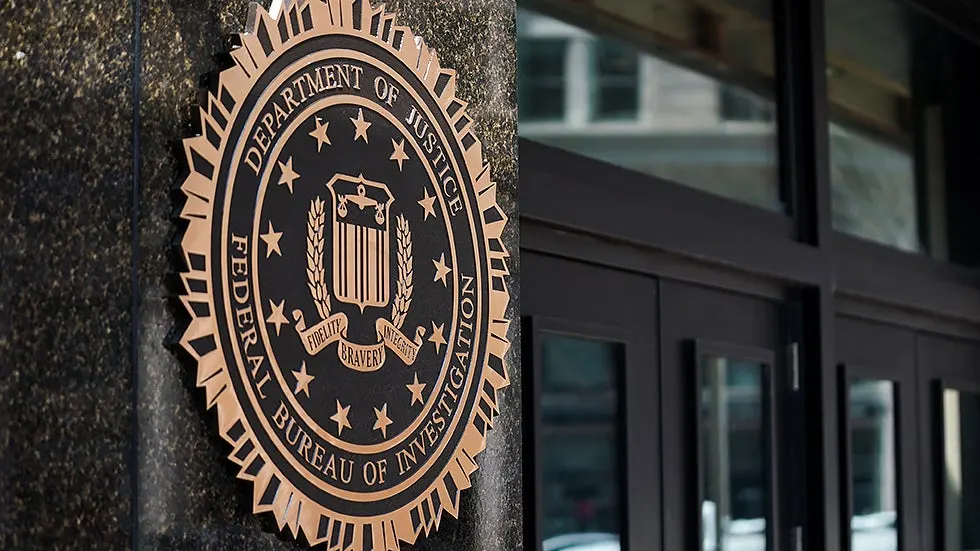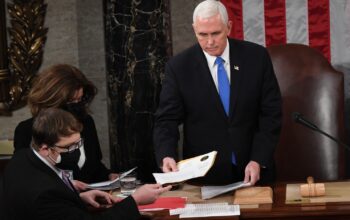The FBI searches through databases of foreign communications in a program that Congress created specifically to catch foreign terrorists and spies. But the FBI uses this same program to glean private information about American citizens and our communications. These so-called “U.S. person queries” are transforming one of the most powerful and invasive surveillance authorities — Section 702 of the Foreign Intelligence Surveillance Act — into a means for FBI agents to spy on Americans without a warrant, gutting the Fourth Amendment of the Constitution.
Section 702 has become increasingly controversial since its passage in 2008. Congress passed it only to authorize the surveillance of non-Americans outside the United States. It was promoted as an authority designed to counter terrorists. Instead, it is being used in Orwellian ways that make America a little more like Russia or China.
Through declassified Foreign Intelligence Surveillance Court (FISC) opinions and other government disclosures, the public has learned that Americans’ personal information is also swept up by what intelligence agencies call “incidental” collection. After our information ends up in government databases, the FBI intentionally searches it to learn more about Americans, our communications, and what we’re up to. This means the FBI can warrantlessly obtain, review and use the private communications of Americans who are not suspected of criminal activity or any wrongdoing.
One could be forgiven for assuming that the FBI would violate the Fourth Amendment in such a way in only the most extreme cases. This is not the case. As early as 2014, the Privacy and Civil Liberties Oversight Board disclosed that FBI agents searched through this database as a matter of “routine practice.”
A declassified FISC opinion from 2020 reveals that FBI agents have used 702 information to snoop on individuals who asked to participate in the FBI’s “Citizens Academies” — a program for business, religious, civic and community leaders to better appreciate the role of federal law enforcement in the community. (Yes, that joke writes itself.) Section 702 also was used without warrants to search the personal information of repair workers entering field offices, people providing tips, and victims reporting crimes.
The same FISC opinion describes the FBI’s systematic failure to obtain court orders before reviewing the contents of Americans’ communications. Congress established this requirement in 2018 after an outpouring of public concern that Section 702 information might be used wrongfully in criminal contexts. The cases in which the FBI failed to abide by Congress’s express requirement to get a court order before accessing the contents of communications included suspected “health care fraud,” hardly the stuff of national security. These and similar violations were discovered during oversight reviews of seven — out of 56 — FBI field offices.
A recent report released by the Office of the Director of National Intelligence (ODNI) is cause for grave concern. From December 2019 through November 2020, the FBI conducted U.S. person queries up to 1,324,057 times. The government reports this as a maximum figure because of continued weaknesses in the FBI’s ability to track their own agents’ use of this information. From December 2020 through November 2021, the FBI nearly tripled its U.S. person queries, conducting up to 3,394,053 searches.
The government’s explanations for these astounding numbers create more concerns than they answer. The ODNI cites, for example, almost 2 million FBI queries relating to Russian cyberattacks against Americans. Accepting this explanation at face value, Congress and the public are left to ask: Why did the FBI conduct the other million or so U.S. person queries, and for what reason? How many innocent Americans’ emails did the FBI read in its millions of searches? Will the increasing frequency of cybersecurity incidents mean the FBI’s U.S. person queries will triple again?
As former chairman of the House Committee on the Judiciary, I have seen firsthand the tendency of law enforcement and intelligence agencies to use surveillance laws to sweep up more information for more purposes — especially when there isn’t adequate transparency.
It would be naïve to expect transparency around U.S. person queries to stop improper surveillance. But transparency would give Congress —and the public — insights to better understand the impact of foreign intelligence surveillance on Americans’ privacy. Thus, Congress should require the FBI to continue reporting on an annual basis how many times it knowingly searches for information about Americans and their communications.
It is in the enlightened interest of the FBI to cooperate on transparency. Another surveillance authority, Section 215 of the USA Patriot Act — which allowed for the collection of personal information from business transactions — was so routinely abused that Congress allowed it to expire in 2020. Section 702 yields insights essential to national security. But don’t be surprised next year, when Section 702 is up for reauthorization, if some in Congress argue that it should expire if the FBI continues to stonewall and run roughshod over the Fourth Amendment.
Bob Goodlatte represented Virginia’s 6th District in Congress from 1993 to 2019 and chaired the House Judiciary Committee. He is a senior policy adviser to the Project for Privacy and Surveillance Accountability.
Source From: The Hill




